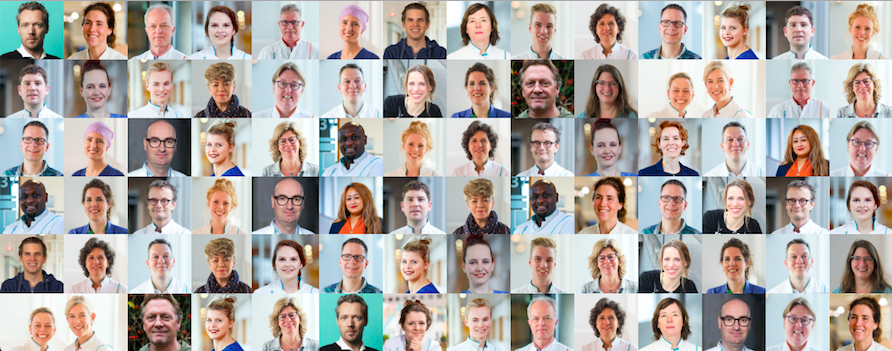Postdoc position 'Majestic magnesium: a molecular gateway to new therapies'
Postdoc position 'Majestic magnesium: a molecular gateway to new therapies'
You cannot apply for this job anymore (deadline was 18 Jan 2020).
Browse the current job offers or choose an item in the top navigation above.
Job description
Within the Ion Transport group of the department of Physiology, we are seeking a Postdoc for a combined genetic, molecular and physiological project entitled "Majestic magnesium: a molecular gateway to new therapies" which is funded by an VICI grant from ZonMW. We offer a challenging postdoc project in a well-organized, international, and high-profile department within the Radboud Institute for Molecular Life Sciences.
Magnesium (Mg2+) is of central importance for a wide variety of physiological processes in our body, including intracellular signaling, neuronal excitability, muscle contraction, bone formation and it acts as essential cofactor in numerous enzymatic reactions. The overall Mg2+ balance is tightly regulated by the concerted actions of the intestine, bones and kidneys, which keep plasma Mg2+ levels within a narrow physiological range. Deficiencies in the Mg2+ balance result in serious health problems including tetany, ataxia, seizures, neuromuscular abnormalities and cardiac arrhythmias that can lead to sudden death. Mg2+-related disorders can be inherited in which magnesiotropic genes have been mutated or acquired in which drugs or environmental circumstances severely affect the Mg2+ status.
Over the last years we have identified new magnesiotropic genes but the functionomics of several transporters remains unclear. Interestingly, hypomagnesemia, and its complications, has also been reported to occur at high frequency among patients with diabetes mellitus type 2. Despite reports linking hypomagnesemia to chronic diabetic complications, attention to this issue was thus far underestimated. There are signs that Mg2+ plays an important role in the onset and progression of the disease. Recent data from my group provided the first evidence that mutations in the renal epithelial Mg2+ channel may play a role. This project aims to investigate rare and acquired disorders to unravel (patho)physiological Mg2+-related processes in the human body.
The following key objectives will be addressed:
Magnesium (Mg2+) is of central importance for a wide variety of physiological processes in our body, including intracellular signaling, neuronal excitability, muscle contraction, bone formation and it acts as essential cofactor in numerous enzymatic reactions. The overall Mg2+ balance is tightly regulated by the concerted actions of the intestine, bones and kidneys, which keep plasma Mg2+ levels within a narrow physiological range. Deficiencies in the Mg2+ balance result in serious health problems including tetany, ataxia, seizures, neuromuscular abnormalities and cardiac arrhythmias that can lead to sudden death. Mg2+-related disorders can be inherited in which magnesiotropic genes have been mutated or acquired in which drugs or environmental circumstances severely affect the Mg2+ status.
Over the last years we have identified new magnesiotropic genes but the functionomics of several transporters remains unclear. Interestingly, hypomagnesemia, and its complications, has also been reported to occur at high frequency among patients with diabetes mellitus type 2. Despite reports linking hypomagnesemia to chronic diabetic complications, attention to this issue was thus far underestimated. There are signs that Mg2+ plays an important role in the onset and progression of the disease. Recent data from my group provided the first evidence that mutations in the renal epithelial Mg2+ channel may play a role. This project aims to investigate rare and acquired disorders to unravel (patho)physiological Mg2+-related processes in the human body.
The following key objectives will be addressed:
- Identification of new magnesiotropic genes;
- Functionomics of recently identified and new magnesiotropic genes;
- Mg2+ as a risk factor in major diseases;
- Innovative methodologies to measure Mg2+ movement.
- The postdoc will design and perform scientific research in the area of genetics, molecular biology and physiology;
- Generates and analyses the data and writes scientific publications and presents findings at scientific meetings;
- Works in a team with other scientists to discuss, plan and perform research in a stimulating environment;
- Works in a highly international research group with fellows from many countries.
Specifications
- max. 36 hours per week
- €2826—€4481 per month
- Nijmegen View on Google Maps
Requirements
- Ph.D. degree in (medical) biology or related discipline;
- Experience with genetic, molecular & cell biology;
- Experience with animal research would be a pré;
- Independent and well-structured working style;
- Strong motivation to succeed in scientific research;
- Well-developed social skills directed to work in a team;
- Interest in transport physiology and clinically-oriented research.
Conditions of employment
Fixed-term contract: 1 year, with a possible extension to 3 years.
Upon commencement of employment we require a certificate of conduct (Verklaring Omtrent het Gedrag, VOG) and there will be, depending on the type of job, a screening based on the provided cv. Radboud university medical center's HR Department will apply for this certificate on your behalf.Read more about the Radboudumc employment conditions and what our International Office can do for you when moving to the Netherlands.
Employer
Radboudumc
The department of Physiology has a long-standing tradition in transport physiology in epithelia and has build up a substantial know-how and infrastructure in the field of molecular and cellular physiology of water and electrolyte transport. The department is, together with basic science and research-oriented clinical departments of the Radboud University Medical Center, housed in the Radboud Institute for Molecular Life Sciences, which integrates diverse scientific expertises in molecular and medical science for the advancement of innovation in translational research.Radboudumc
Radboudumc strives to be a leading developer of sustainable, innovative and affordable healthcare to improve the health and wellbeing of people and society in the Netherlands and beyond. This is the core of our mission: To have a significant impact on healthcare. To get a better picture of what this entails, check out our strategy.
Read more about what it means to work at Radboudumc and how you can do your part.
Specifications
- Postdoc
- Natural sciences
- max. 36 hours per week
- €2826—€4481 per month
- Doctorate
- 109203-P559721-1
:fill(white)/logos/umcr-en-wide.png)
